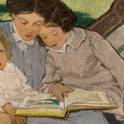“I don’t believe that gay sex is a sin.” It took a long time for Tim Farron to say it, long enough for discussion about whether the seeming private illiberality of the Liberal leader was a disgrace or completely irrelevant. The discussion was often heated. Tory Tim Montgomerie decried the “totalitarian” demand for “politicians to reveal inner thoughts and beliefs” while Labour MP Liz Kendall called his initial refusal to say gay sex wasn’t sinful offensive.
The key issue here is not, as Montgomerie claimed, whether or not politicians are entitled to their private views. Rather it is, as one writer put it, whether “this evasiveness may cause potential voters to question whether Farron’s conscience would allow him to whip his party in favour of LGBT-friendly legislation in future votes.”
As soon as the question is asked, the answer becomes obvious. Farron’s record suggests very strongly that however conservative his divine morality, his secular politics is (almost) impeccably liberal. Although he has not always voted in line with majority LGBT-rights opinion, he has expressed regret for some past choices which no one could claim were actually homophobic nor defended with anti-gay rights arguments. It is striking that Pink News pointed this out more strongly than other news sources, noting how Farron led “calls against the persecution of gay people in Chechnya,” helped “secure the safety of a transgender woman who has been sent to a man’s prison” and criticised “the blanket ban on blood donation by men who have sex with men.”
Suspicion of Farron’s equal rights credentials reflects a wider misunderstanding of the very nature of politics and its relationship to morality. Secular, pluralist democracy rests on the assumption that members of society have different, often very divergent conceptions of morality and the good life. It negotiates these differences by distinguishing between public and private space, allowing individuals to live according to their own consciences as far as that is compatible with allowing others to live according to theirs.
To be a liberal in such a polis is to be firmly committed to this principle of individual liberty of conscience. It doesn’t require actually having a liberal personal morality. A political liberal can be a moral conservative. What matters is not whether Farron believes that gays will burn in hell for their sins but whether he believes they have the legal right to secure their own damnation before rule passes from the human to the divine.
To see how deeply illiberal it would be to deny this, just think what would follow if we demanded a liberal personal morality from our Muslim MPs. Muslims differ in what they believe more than others give them credit for, but the vast majority do believe that homosexuality, insulting the prophet and eating pork are all wrong. A great many also believe, however, that it is not the state’s role to outlaw such things. Although there are theocratic states that enshrine Qur’nic morality in law, there is a long tradition in the Islamic world of religious legal neutrality. Many know the hadith story of two men who, walking the streets at night, realised that a Muslim neighbour was drinking wine. Far from taking action, however, they saw that they themselves had done what Allah has prohibited, remembering the Qur’nic injunction “Do not spy.”
A failure to distinguish between civic tolerance and personal judgement is one reason why the religious beliefs of politicians are too often swept under the carpet. Politicians are understandably reluctant to discuss their beliefs if people are then going to jump to all sorts of conclusions about what they entail for their political positions.
The Farron case provides a good example of why a politician's religious views are neither irrelevant nor necessarily critical in deciding whether we give them our support. I want to know what kind of man Farron is and knowing he is an evangelical Christian does make me question his judgement and whether he is the best person to lead his party. However, democracy only works when despite this, people like me are willing to support people like him when we see we share the same political goals. Democracy requires broad coalitions of interests among people who differ. Otherwise, it degenerates into a fractured competition between polarised groups of “people like us.” Sadly, that is just what democracy has become in Britain, in the US and elsewhere. Liberals’ intolerance of Farron’s heretical personal morality is therefore a symptom of a wider malaise in the very nature of pluralist democracy.
Do Tim Farron's views on homosexuality matter, politically?
Democracy requires broad coalitions of interests among people who differ
April 28, 2017

Liberal Democrat leader Tim Farron ©Danny Lawson/PA Wire/PA Images












